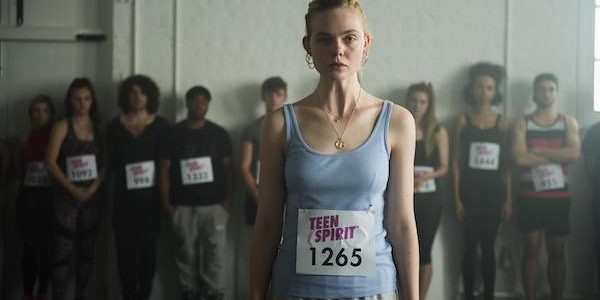
ReelBob: ‘Teen Spirit’ ★★½
By Bob Bloom
“Teen Spirit” is one of those movies whose familiarity does not diminish its storyline.
Violet, a young woman living with her mother on a farm on The Isle of Wight, loves to sing.
She spends her days in school, doing chores on the farm, participating in the church choir and working at a pub, where she also gets the opportunity to sing.
She is a 17-year-old who wants more out of life — and she believes her voice is her ticket to better things.
Her opportunity arises when auditions for a TV singing competition, Teen Spirit, are held on the island.
Violet, without telling her religious mother, signs up. She impresses the judges and moves on.
But to do so, she must enlist the aid of Vlad, a patron of the pub where she works, who happens to be a former opera singer.
He poses as her uncle and signs Violet’s consent form.
As Violet advances in the competition, she and Vlad eventually must confess to her mother, who reluctantly gives her daughter her blessing.
Writer-director Max Minghella’s movie, while short on originality, is blessed with the star power of Elle Fanning as Violet.
Fanning carries the movie, allowing you to overlook many of the script’s shortcomings and plot points that are introduced, then dropped.
Fanning brings a sweetness and naiveté to Violet, as well as a quiet determination that compensates for her insecurities and vulnerability, while she continually advances in the competition.
“Teen Spirit,” at 93 minutes, is colorful and engaging, especially because Fanning impresses with the vocals. She does her own singing, which gives the movie more of an authentic vibe, despite Minghella’s reliance on a few clichés to advance the plot.
“Teen Spirit” can be viewed as a young-adult “A Star Is Born”-lite because Violet is buffered with challenges that test her scruples and her relationships.
The film’s foundation rests on shaky ground by the time the scene shifts to London and the competition’s finale.
There, Violet is portrayed as a fish out of water, who seemingly is under assault from more sophisticated individuals who pressure her to be someone she’s not.
That includes Rebecca Hall in a one-note performance as a record executive who tries to get Violet to sign a deal before the competition finale.
Will Violet succumb or remain faithful to her mentor Vlad?
The outcome is pre-ordained from the outset, but Minghella simply needs to create some conflict and tension — no matter how artificial.
Zlatko Buric’s solid characterization as Vlad is undermined by a lack of depth. We learn that he never visits his daughter who lives in Paris, but no reason is given for any estrangement.
Agnieszka Grochowska as Violet’s mother also is underwritten, which denies us much access to why she is so protective of Violet.
Yet, despite all these flaws, “Teen Spirit” is appealing. Its simplicity makes it easy to follow the movie and connect with Violet.
“Teen Spirit” has some problems, but they all seem to vanish when Fanning opens her mouth and begins singing. I am a founding member of the Indiana Film Journalists Association. My reviews appear at ReelBob (reelbob.com) and Rottentomatoes (www.rottentomatoes.com). I also review Blu-rays and DVDs. I can be reached by email at bobbloomjc@gmail.com or on Twitter @ReelBobBloom. Links to my reviews can be found on Facebook, Twitter and LinkedIn.
TEEN SPIRIT
2½ stars out of 4
(PG-13), suggestive content, teen smoking and drinking